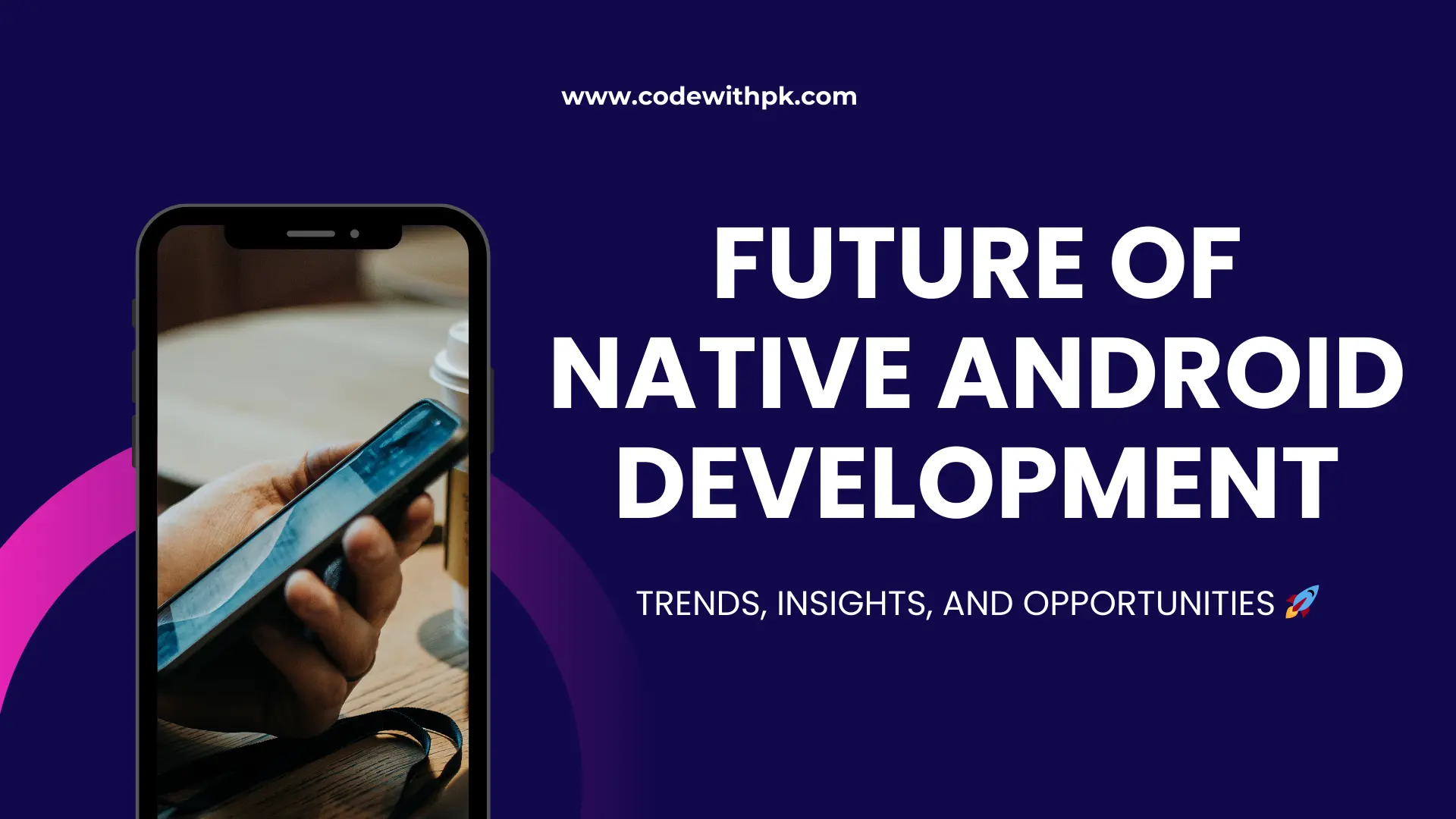
In the rapidly evolving app development landscape, the question often arises: Is native Android development still relevant in the age of cross-platform tools? The answer is a confident Yes! Despite the growing popularity of frameworks like Flutter and React Native, native Android development continues to hold a vital place for delivering high-performance, feature-rich, and secure applications.
Let’s delve into why native Android development remains indispensable, its advantages, future prospects, and some fascinating insights backed by data and trends.
What is Native Android Development?
Native Android development involves building applications specifically for the Android operating system using tools like the Android SDK and programming languages such as Kotlin or Java. This approach ensures seamless performance, full access to Android’s capabilities, and deep system integration.
📊 Insights: Native Android vs. Cross-Platform Jobs
- Higher Salaries for Native Developers
- Native Android developers earn, on average, 20-30% more than cross-platform developers due to specialized skills and higher demand for performance-critical apps.
- Expanding Opportunities
- The Android ecosystem is evolving beyond smartphones. Android OS for laptops and desktops is expected to compete with Windows and macOS, opening new avenues for native developers.
Salary Comparison
| Developer Role | Average Salary (INR) |
|---|---|
| Native Android Developer | ₹15,00,000 – ₹25,00,000 |
| Cross-Platform Developer | ₹10,00,000 – ₹18,00,000 |
The Rise of Cross-Platform Tools
Cross-platform frameworks like Flutter, React Native, and Kotlin Multiplatform promise faster development using a single codebase for Android and iOS. While they are ideal for certain projects, they fall short in areas like performance, security, and deep system integrations, where native Android development outshines.
Why Native Android Development Still Matters
1. Unmatched Performance
Native apps run directly on the Android OS without abstraction layers, ensuring:
- Faster load times
- Efficient resource utilization
- Smooth animations
2. Access to the Latest Android Features
Native development enables early adoption of cutting-edge Android features like:
- Foldable screen support
- Augmented Reality (AR) capabilities with ARCore
- Advanced device integrations (e.g., sensors, fingerprint scanners)
3. Enhanced User Experience (UX)
Native apps leverage Android’s Material Design guidelines, ensuring intuitive interfaces and consistent designs across devices.
4. Robust Security
Native development offers tight control over:
- Data encryption protocols
- Secure OS interactions
5. Rich Developer Ecosystem
The vibrant Android community provides:
- Extensive libraries for streamlined development
- Active forums and documentation for quick troubleshooting
🚀 The Bright Future of Native Android Development
1. Kotlin’s Evolution
Kotlin, the preferred language for Android development, is continually advancing with features like:
- Coroutines for seamless asynchronous programming.
- Kotlin Multiplatform, enabling code sharing while preserving native performance.
2. Android for Laptops and Desktops
Google is working on Android OS expansions for non-mobile devices. Native developers will play a pivotal role in shaping apps for laptops, desktops, and even IoT devices.
3. SDK Innovations
Recent additions like Jetpack Compose for UI design and App Bundles for smaller app sizes ensure native development remains modern and efficient.
Real-World Use Cases of Native Development
Example 1: Gaming Apps
- Why Native? Native development ensures high-performance rendering and low-latency interactions crucial for immersive gaming.
Example 2: AR-Based Shopping Apps
- Why Native? Full access to ARCore ensures precise device-specific interactions and optimized performance.
Example 3: Banking Apps
- Why Native? Native development provides robust security for sensitive user data, including biometric authentication and secure transactions.
📝 When Should You Choose Native Android Development?
| Use Case | Reason |
|---|---|
| High-Performance Apps | Apps like gaming or photo editing demand maximum speed and resource efficiency. |
| Complex UI/UX | Native ensures polished, platform-specific designs. |
| Feature-Rich Applications | Apps needing advanced integrations or early access to new features. |
| Security-Critical Apps | Banking, healthcare, or apps with sensitive data. |
📈 Graph: Cross-Platform vs. Native Android Developer Trends
Demand (%)
70 ──●─────────────── Native Android Developers
60 ──│●────────────── Cross-Platform Developers
50 ──││
40 ──││●────────────── Cross-Platform Development Peaks
30 ──│││●───────────── Native Demand Remains Stable
20 ──││││
10 ──││││
0 ──││││─────────────────────────────► Year
2015 2020 2025
Conclusion
Native Android development is not just surviving—it’s thriving. As cross-platform tools cater to general use cases, native development remains the go-to solution for high-performance, secure, and feature-rich applications.
With advancements in Kotlin, continuous innovations in the Android SDK, and the expanding ecosystem of Android beyond mobile devices, the future for native Android developers is brighter than ever.
For those aiming to deliver unparalleled Android experiences and secure lucrative opportunities, native Android development is a smart investment in your career.
Thank you for reading! ✌
